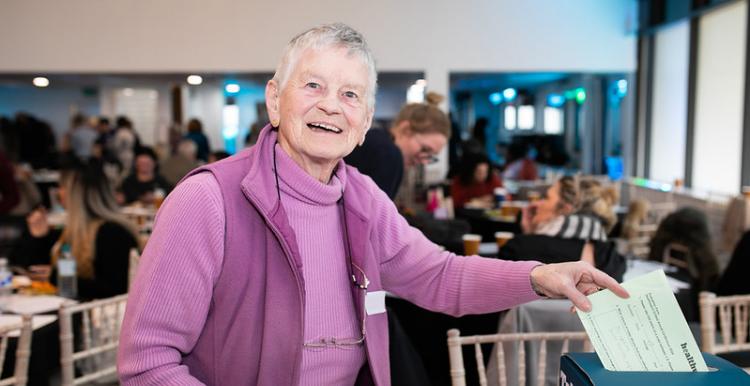Managing volunteers remotely

About this guidance
Many Healthwatch volunteers are involved in their community’s response to COVID-19 or are continuing to contribute to our work. Meanwhile, others are self-isolating or shielding because of Government guidance. During this time, we must continue to support the needs of all volunteers.
This guidance has been produced with input from staff who manage volunteers, to help anyone responsible for managing volunteers remotely. Thanks to Healthwatch Havering and Healthwatch Gateshead for their contributions to this article.
Keep in touch
To see how they are
Contact your volunteers to ask how they and their families are doing. It may sound simple but having this as the main purpose of your call could have a big impact on your volunteers. Check in with those who are shielding and have support needs. You may be able to help with community information and sources of help, such as COVID-19 Mutual Aid groups.
In a way they prefer
Each volunteer will have a preference for how they want to be contacted. While someone may prefer an email once a week, another may like a phone call twice a week. All members of your Healthwatch staff team should have access to the volunteer’s names, contact details and people’s contact preferences. Find out what each of your volunteers would prefer.
Offer different communication methods to suit the needs of your volunteer. For example:
- Phone calls
- Text messages
- Emails
- Teleconferences
- Video calls e.g. Zoom
- WhatsApp groups
Keep informed
Provide information
There is a huge amount of information available to the public on COVID-19. It is important that you share information from trusted sources. Point your volunteers towards our Coronavirus Workplace group and the Coronavirus page on our network site.
You could also use a volunteer newsletter to keep them updated. Several Healthwatch are already do this, providing Healthwatch news and information about COVID-19 and positive news stories.
Signpost to other volunteering opportunities
Some of your volunteers may want to help other organisations who are part of their community’s COVID-19 response. Talk to your volunteers to see what their thoughts are and share information about other volunteering opportunities with them. If they do volunteer elsewhere, check in with them to ask them about their experience.
If your volunteers have been seconded to another volunteering opportunity via your Healthwatch, make sure they understand who they report to. They will need to know who is responsible for their management and where their accountabilities lie. For example, if an issue arose who they would need to inform.
Need support?
Alvin Kinch is our Volunteer Lead at Healthwatch England. If you need help with anything, Alvin can help support you with any queries regarding managing your volunteers.
Get creative
Involve
Find out if and how your volunteers want to stay involved with your Healthwatch.
Many Healthwatch are involving volunteers in a range of activities:
- Writing articles for the newsletter and website
- Undertaking research
- Gathering feedback from friends and family to share with Healthwatch
- Checking social media for trends
- Feeding back on reports and business plans.
Remember, some volunteers may choose not to be active during this time.
Training and learning opportunities
We have shared a list of free online training and learning opportunities which can be completed remotely by your volunteers.
Check out your local council for voluntary services and volunteer centre websites to see if there are any relevant courses available. NCVO has several online courses which may be useful during this time.
If you are inducting new volunteers into Healthwatch, don’t forget to use our online induction.
Do something different
Staying in touch socially can be a good way to keep your volunteers involved with Healthwatch. Think about providing your volunteers with an opportunity to join in with something light-hearted and fun.
For example, why not try a weekly quiz? This could be based on Healthwatch, health and social care, or subjects that have nothing to do with their volunteering!
Give thanks
Reward and recognise contributions
Think about ways of thanking your volunteers. There are many ways to show recognition.
You could send thank you cards with an appreciative message, or give a shopping voucher that could be used online or in store.
Volunteers may be incurring costs by continuing to volunteer, such as electricity and broadband costs. Encourage your volunteers to claim their expenses in line with your volunteering policy.
Look after yourself
Wellbeing
It’s easy to focus on supporting and caring for your volunteers. Remember to also look after yourself during this time. Make sure you have the support you need and access to useful information. The network site has several articles to help you work remotely, as does the Healthwatch public site. For example, our articles on creating a routine, or six ways to work well from home, could help you during this time.
Availability
You may find that your working times and days have or will change during the pandemic. If you manage volunteers, make sure they are kept up to date with your working hours. Provide backup contact details of colleagues who can stand in when you are not available.
Useful resources
The NCVO have several helpful resources on informing and managing volunteers during the Coronavirus Pandemic.
